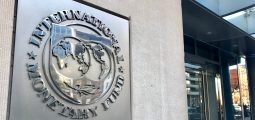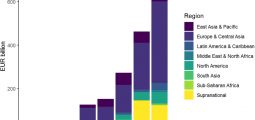UN Report on International Investor Disputes
 Foreign investors are increasingly resorting to investor-State arbitration to settle investment disputes, with a record number of cases filed last year, according to a new report released on April 10th by the United Nations Conference on Trade and Development (UNCTAD).
Foreign investors are increasingly resorting to investor-State arbitration to settle investment disputes, with a record number of cases filed last year, according to a new report released on April 10th by the United Nations Conference on Trade and Development (UNCTAD).
The report, “Recent Developments in Investor–State Dispute Settlement (ISDS)”, showed that 62 new cases were filed in 2012, of which 68 per cent of respondents were from developing or transition economies.
“Recent developments have amplified a number of cross-cutting challenges that are facing the ISDS mechanism, which gives credence to calls for reform of the investment arbitration system,” said James Zhan, Director of UNCTAD’s Division on Investment and Enterprise, which published the report.
Foreign investors challenged a broad range of government measures, UNCTAD reported, including revocations of licences, breaches of investment contracts, irregularities in public tenders, changes to domestic regulatory frameworks, withdrawal of previously granted subsidies, direct expropriations of investments and imposition of taxes.
Nine decisions in 2012 awarded damages, including the World Bank’s International Centre for the Settlement of Investment Disputes (ICSID), which ordered Ecuador to pay $1.77 billion to Occidental Petroleum Corp as compensation for taking over its assets in 2006. The monetary award was the highest in the history of Investor-State Dispute Settlement (ISDS).
In addition, for the first time in treaty-based ISDS proceedings, an arbitral tribunal affirmed its jurisdiction over a counterclaim lodged by a respondent State against the investor.
“By the end of 2012, the total number of known cases reached 518, and the total number of countries that have responded to one or more ISDS claims increased to 95, according to UNCTAD.”
The overall number of concluded cases reached 244, out of which approximately 42 per cent were decided in favour of the State and 31 per cent in favour of the investor. Approximately 27 per cent of the cases were settled.
“The ISDS mechanism is already a source of considered reflection in numerous bilateral and regional IIA negotiations. However, a multilateral dialogue on ISDS could prove more effective in bringing about a harmonized approach to reform,” Mr. Zhan said.
You may have an interest in also reading…
World Bank Group: Are Stars Aligning for Clean-Energy Financing?
One of the biggest bangs on the opening day of the Paris COP21 climate summit was without doubt the dual
The European Conundrum
The European Union is an interesting project that – once logic is duly applied – must end up with the
Nordea’s Sasja Beslik on Davos 2015: Rising Inequality Unsustainable, Inclusiveness Answer
Davos – A participant of earlier World Economic Forum (WEF) meetings in Davos, Sasja Beslik, head of Responsible Investment and



























































































